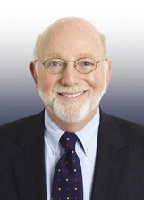In 1993, the U.S. Green Building Council adopted LEED (Leadership in Energy and Environmental Design) standards for environmentally sound buildings. Today's interest in LEED has generated local and national mandates, legislative requirements and preferential treatment for LEED projects. Federal incentives include 17 tax, loan and grant programs. States have 298 tax incentives, 121 loan programs and 290 rebate programs. Municipal and corporate facilities departments specify space requirements that improve efficiencies and cost savings for their occupancy needs.
LEED certification involves six areas: Sustainable Sites; Water Efficiency; Energy and Atmosphere; Materials and Resources; Indoor Environmental Quality; and Innovation and Design Process. A project administrator files design plans with USGBC proposing credits the building project expects to attain. Water efficient landscaping, innovative wastewater technologies, renewable energy use, elimination of ozone depleting refrigerants or thermal and lighting improvements qualify for design credits.
Construction credits may be awarded for recycled materials, effective construction waste management or use of low emitting building finishes. Working with a LEED AP (Accredited Professional) can greatly expedite this process. LEED AP attorneys can also assist owners, tenants, lenders, design and construction professionals and associated title, survey and environmental specialists in resolving LEED issues.
LEED certification is the mark of future-oriented real estate, providing significant financial and tax benefits to your building plans. Environmentally sound and cost effective buildings are more attractive to tenants and employees, resulting in higher satisfaction, marketability and potential profits. Investigating LEED certification can result in significant opportunities for you, your clients and the future.
The full version of this article, with an in-depth discussion of the issues raised herein, may be viewed at www.mrglaw.com. This article is for general interest and education only and does not constitute legal advice.
Robert Firger, LEED AP is a member of the Real Estate Practice Group of MacDermid, Reynolds & Glissman, PC, Hartford, Conn.
Tags:









